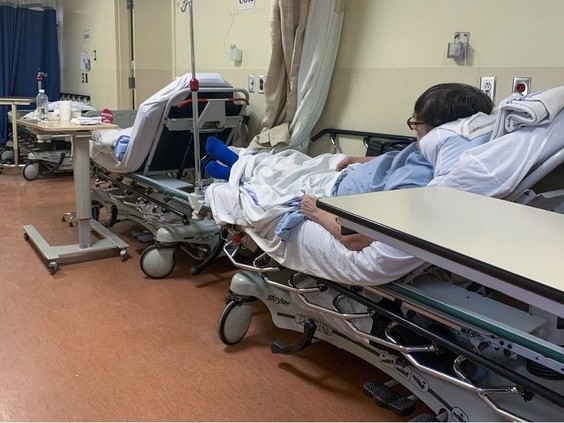Health
Listening to Patients: A Path to Compassionate Health Care

Health care systems worldwide are beginning to recognize the importance of listening to patients and families. This shift towards valuing patient experiences can lead to more compassionate, responsive, and equitable care. The insights shared by those who use the system reveal critical aspects of health care that metrics alone cannot adequately capture.
Patient stories are not merely reflections of satisfaction; they provide complex narratives that highlight what truly matters in health care. When patients, family members, and caregivers voice their experiences, they offer more than opinions. They present evidence of how well the system functions and where it falls short. For example, what made someone feel safe? Where was trust established or broken?
Despite their significance, feedback from patients and families is frequently treated as a peripheral concern or compliance requirement rather than a vital mechanism for learning and accountability. This perspective overlooks the potential of personal experiences as valuable sources of knowledge. Often, critical feedback gets reduced to mere data points instead of being explored more deeply through storytelling.
The Role of Care Opinion in Patient Feedback
At the forefront of this shift is Care Opinion, a platform aimed at transforming how feedback is both given and received. Influenced by an established model in the UK, Care Opinion promotes a relational and participatory approach to health care improvement. By allowing individuals to share their health care experiences publicly and anonymously, it fosters reflection, dialogue, and mutual learning between patients, families, and health care providers.
The stories shared on Care Opinion serve as moral data. They provide insights into the emotional, cultural, and interpersonal dimensions of care. Elements such as the tone of a conversation or the silence observed in a hallway can reveal much about the quality of interaction between patients and health care staff. These narratives often challenge official accounts and identify gaps that traditional metrics may overlook.
The Healing Power of Storytelling
Storytelling is not only a valuable tool for the health care system; it can also be a means of healing for those who share their experiences. A poignant example is the story of Kimberley, who faced life-threatening complications after giving birth to her second daughter in 2024. Kimberley contracted sepsis and invasive Group A Strep but survived due to the swift care she received at Rockyview General Hospital.
Grateful for the life-saving treatment, Kimberley chose to share her experience on Care Opinion. Her story not only expresses gratitude for those who saved her life but also illustrates the impact of compassionate care. By sharing such narratives, patients like Kimberley contribute to a collective understanding of health care that goes beyond statistics and metrics.
As health systems seek to improve, the imperative to listen closely to the voices of those they serve becomes increasingly clear. The experiences of patients, families, and caregivers should be integral to discussions about health care quality and reform. Valuing these stories can enhance accountability and foster a culture of empathy within health care systems around the globe.
-

 Science3 months ago
Science3 months agoToyoake City Proposes Daily Two-Hour Smartphone Use Limit
-

 Top Stories3 months ago
Top Stories3 months agoPedestrian Fatally Injured in Esquimalt Collision on August 14
-

 Health3 months ago
Health3 months agoB.C. Review Reveals Urgent Need for Rare-Disease Drug Reforms
-

 Technology3 months ago
Technology3 months agoDark Adventure Game “Bye Sweet Carole” Set for October Release
-

 World3 months ago
World3 months agoJimmy Lai’s Defense Challenges Charges Under National Security Law
-

 Lifestyle3 months ago
Lifestyle3 months agoVictoria’s Pop-Up Shop Shines Light on B.C.’s Wolf Cull
-

 Technology3 months ago
Technology3 months agoKonami Revives Iconic Metal Gear Solid Delta Ahead of Release
-

 Technology3 months ago
Technology3 months agoApple Expands Self-Service Repair Program to Canada
-

 Technology3 months ago
Technology3 months agoSnapmaker U1 Color 3D Printer Redefines Speed and Sustainability
-

 Technology3 months ago
Technology3 months agoAION Folding Knife: Redefining EDC Design with Premium Materials
-

 Business3 months ago
Business3 months agoGordon Murray Automotive Unveils S1 LM and Le Mans GTR at Monterey
-

 Technology3 months ago
Technology3 months agoSolve Today’s Wordle Challenge: Hints and Answer for August 19









